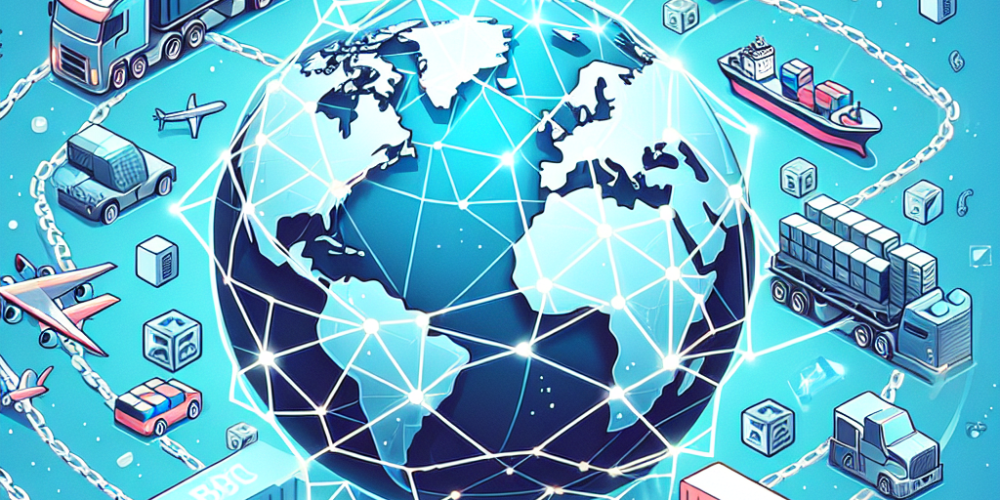In an era dominated by advancements in digital technology, blockchain has emerged not only as a groundbreaking innovation in finance but also as a transformative force within global supply chain management. Recent developments indicate that major multinational corporations are now leveraging blockchain technology to enhance transparency, efficiency, and trust in their supply chains, heralding a significant shift in how products are tracked from manufacture to market.
The advent of blockchain in this sphere was recently underscored by the announcement from a consortium of leading tech companies, including TechLog Solutions and Global Chain Inc., which have successfully implemented a blockchain-based tracking system across their operations in Asia and Europe. This system allows for real-time tracking of products, critical in today’s fast-paced market environments, thus significantly reducing delays and preventing the loss of goods.
Blockchain technology, which maintains a decentralized and tamper-proof ledger of transactions, is uniquely positioned to address common challenges in supply chain management such as counterfeiting, theft, and inefficiencies due to lack of transparency. By enabling a secure and immutable record-keeping system, all parties in the supply chain can access up-to-date, reliable data regarding the whereabouts and authenticity of products.
Impact on Global Trade
The implications of this technology extend far beyond simplifying tracking processes. In a global economy where trade disputes and geopolitical tensions can disrupt supply chains, blockchain introduces a level of security and neutrality that helps mitigate risks associated with international trade. For instance, customs and border agencies can swiftly verify shipments and their contents, reducing the time goods spend in transit and at checkpoints, which traditionally contribute to significant economic losses.
Economic Advantages
From an economic perspective, the cost savings associated with blockchain are potentially vast. According to a recent study by the Blockchain Global Trade Initiative, the widespread adoption of blockchain could lead to a reduction in global trade costs by up to 20%, amounting to billions of dollars in savings annually for the global economy. These savings stem from reduced need for manual processes and documentation, fewer errors, and increased compliance with regulatory standards.
Sustainability and Ethical Considerations
Beyond economic benefits, blockchain also offers solutions to some pressing ethical and environmental issues faced by global supply chains. The technology enables companies to prove the ethical sourcing of materials, such as conflict-free minerals or sustainably farmed produce, enhancing corporate responsibility efforts and consumer confidence. Furthermore, the enhanced ability to track goods can also lead to better inventory management, thus minimizing waste and supporting sustainability goals.
Challenges and Future Directions
Despite these advantages, the adoption of blockchain in supply chains is not without challenges. Technical issues such as scalability, energy consumption (particularly with systems that use extensive computational power like Bitcoin), and integration with existing IT systems pose significant hurdles. Moreover, there is a pressing need for regulatory frameworks that can keep pace with technological developments and address issues like data privacy and cross-border compatibility.
Recognizing these challenges, governments and international bodies are increasingly focusing on creating supportive legal and operational environments. Initiatives like the European Blockchain Partnership aim to foster collaboration between member states to accelerate the adoption of blockchain technologies in areas including supply chain management.
Conclusion
As we continue to witness the integration of blockchain technology into various sectors, its potential to revolutionize global supply chains stands out as a particularly promising area. With major corporations leading the way, the coming years will likely see an expansion of blockchain applications in supply chains, driving not only economic efficiency but also improvements in transparency and sustainability. The evolving landscape will require continued innovation, collaboration, and regulatory adaptation, but the foundations are being laid for a radical transformation in the way global trade operates.
In conclusion, as blockchain continues to break barriers and redefine possibilities, the future of global supply chains looks more interconnected, secure, and efficient, ready to meet the demands of the modern economy.



